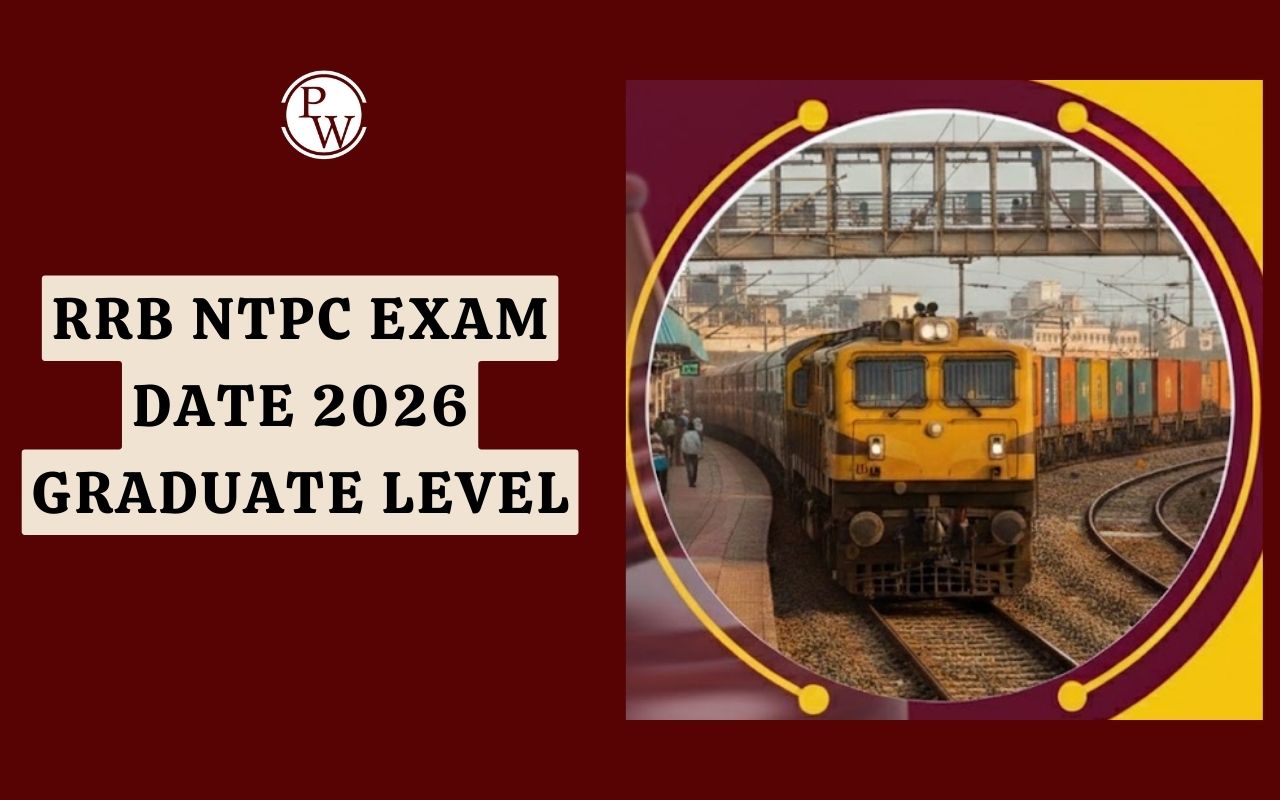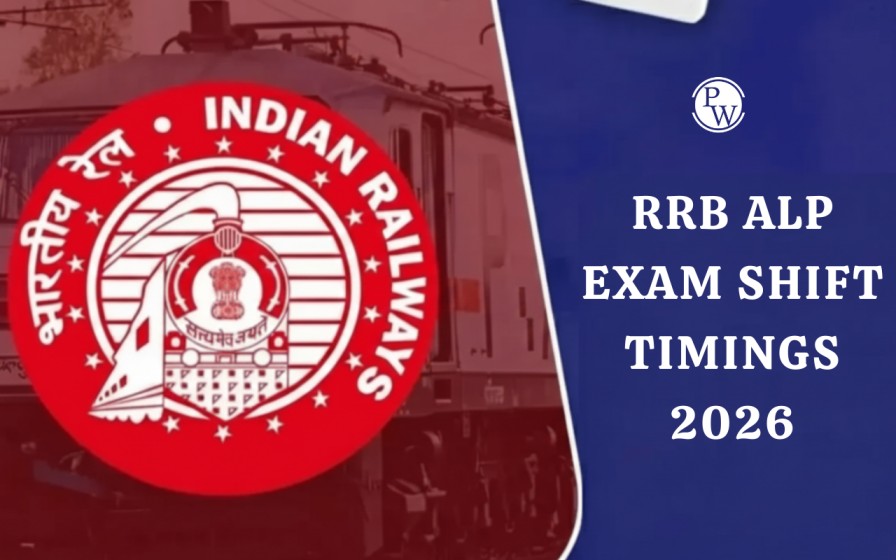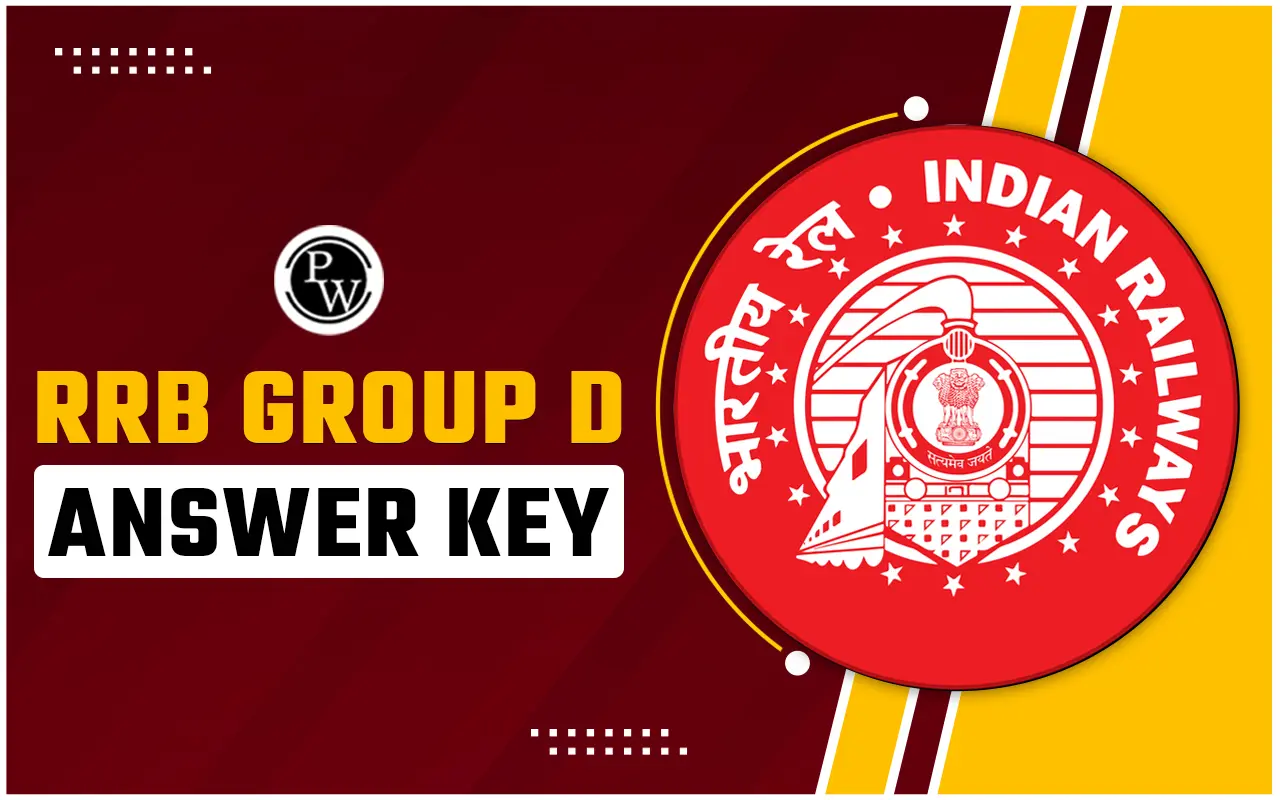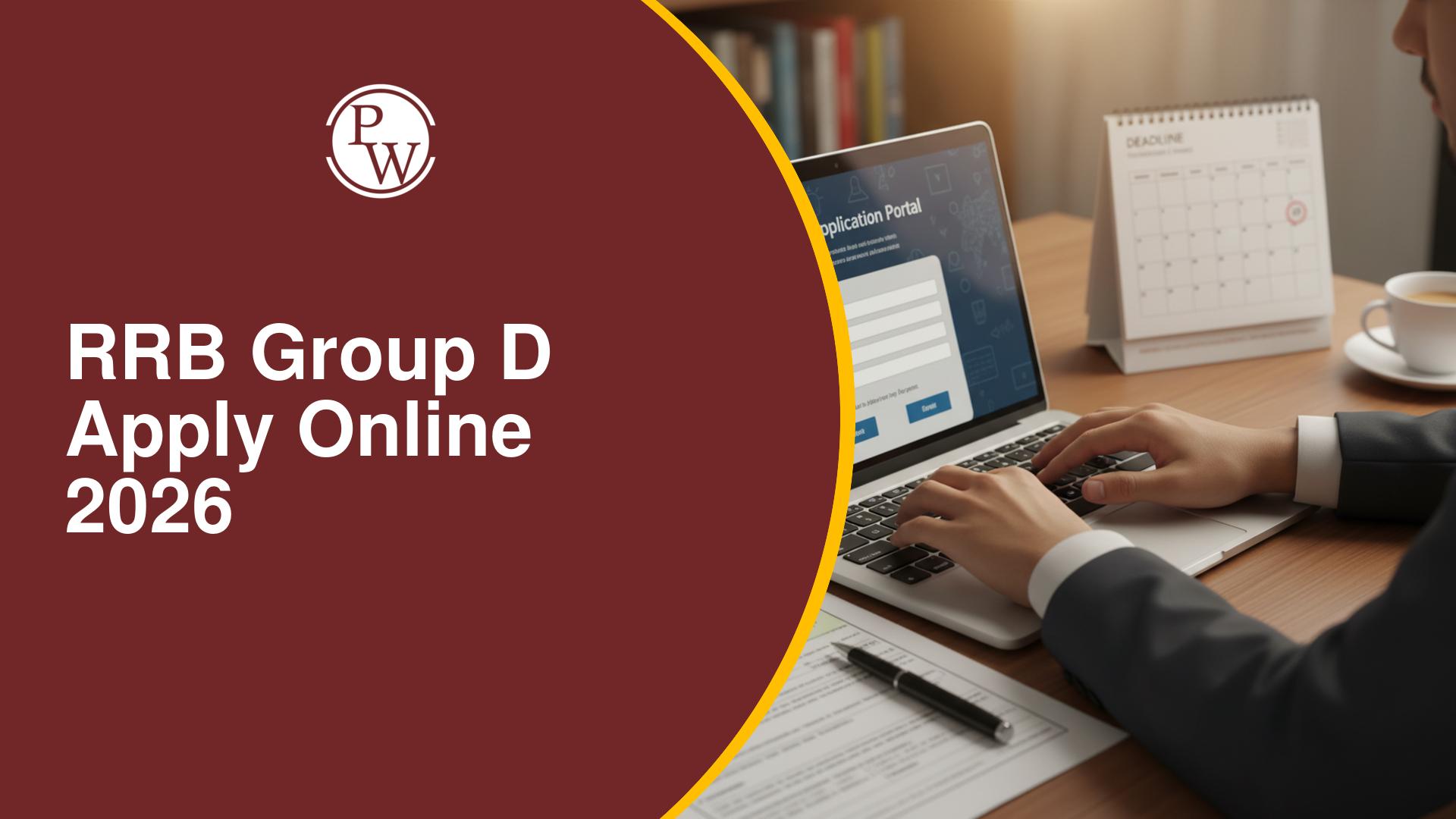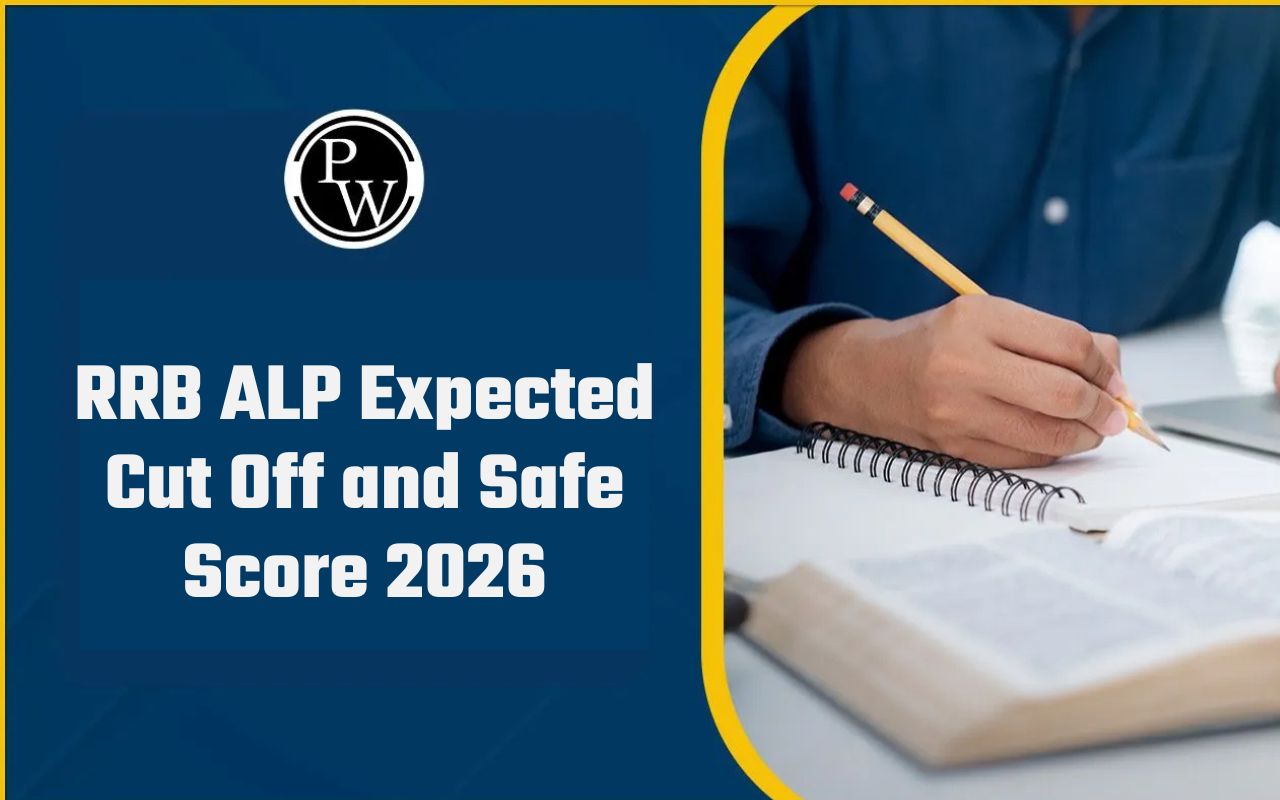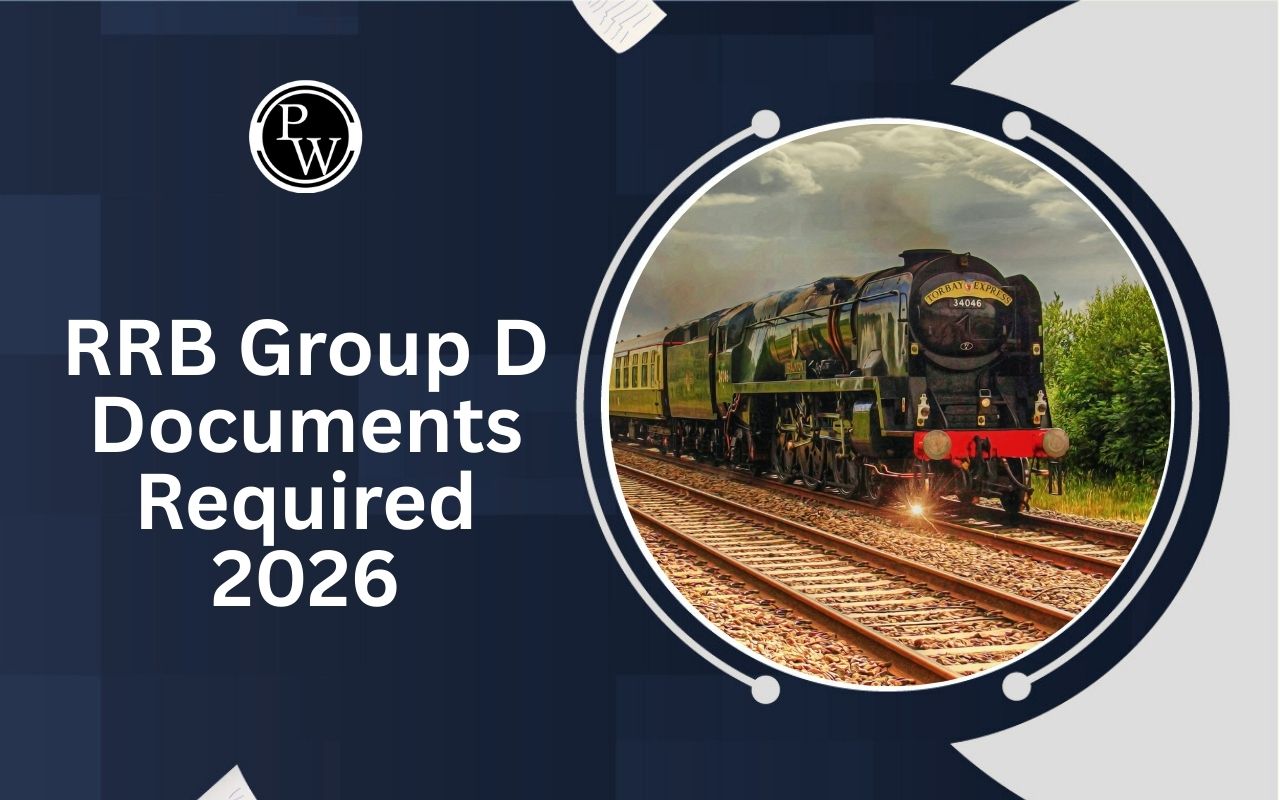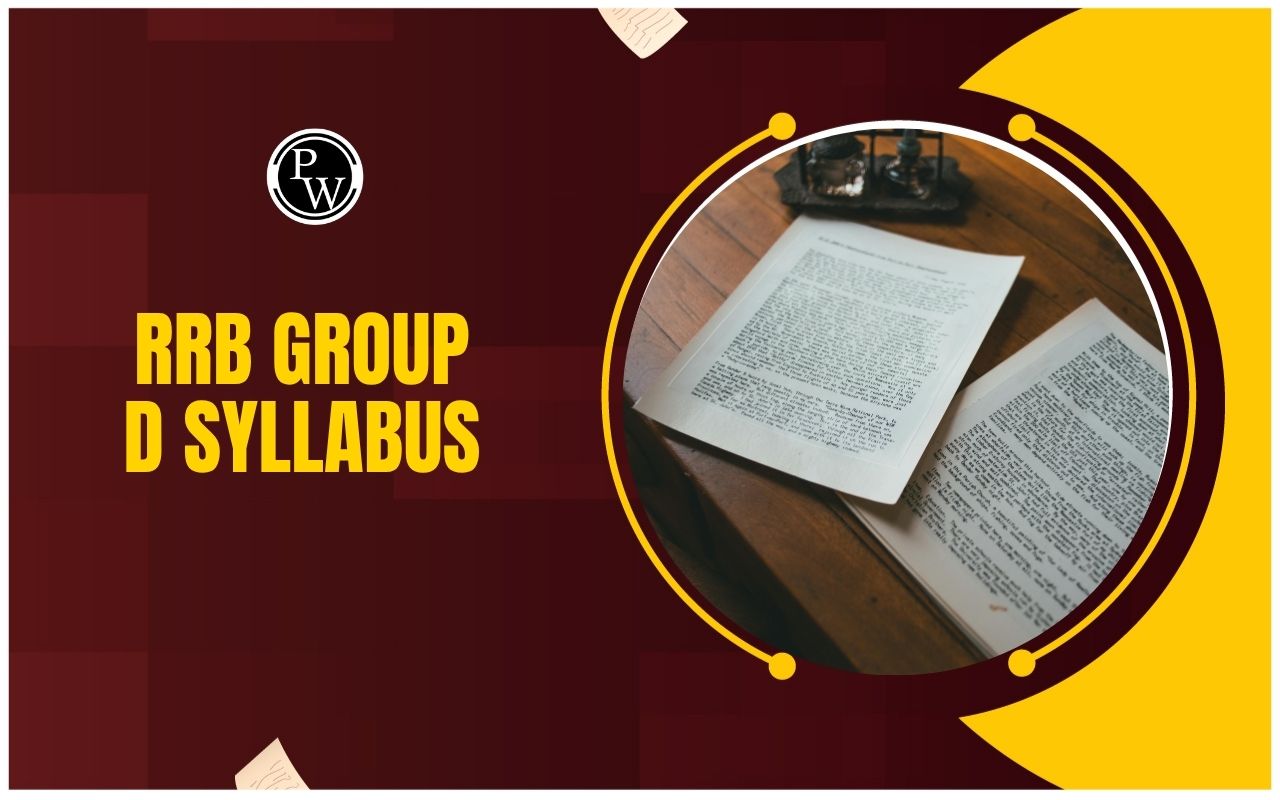
RRB Group D Maths Syllabus 2026: The RRB Group D Maths Syllabus 2026 covers, many topics related to Arithmetic, Algebra, Geometry, Mensuration, Trigonometry, and Data Interpretation. Key topics include Number System, Ratio & Proportion, Profit & Loss, Time & Work, Simple & Compound Interest, etc. Strong conceptual understanding, regular practice, and shortcut techniques are essential for scoring high on the exam.
RRB Group D 2026 short notice published on 23 December 2025 and the detailed notification scheduled to be released on 20 January 2026.
RRB Group D Maths Syllabus 2026
RRB conducts the Railway Group D Exam for various entry-level jobs in Indian Railways. Mathematics plays a crucial role among all the subjects tested in the RRB Group D Computer-Based Test (CBT). Out of 100 questions, 25 questions are asked from this section evaluating the candidate's numerical ability and problem-solving skills.
Check: RRB Group D Eligibility
RRB Group D Maths Syllabus 2026 Overview
The RRB Group D Maths section is one of the most important parts of the Computer-Based Test (CBT). It tests candidates on basic arithmetic concepts, algebra, geometry, mensuration, and data interpretation. To score well, aspirants must focus on conceptual clarity, speed, and accuracy. Below is the detailed RRB Group D Syllabus for the RRB Group D Mathematics section, categorized into different topics along with their descriptions.
RRB Group D Arithmetic Maths Syllabus 2026
The Arithmetic section focuses on fundamental mathematical concepts such as number system, percentages, profit and loss, time and work, and ratio-proportion. These topics help in solving daily-life calculations and are essential for numerical aptitude.
| RRB Group D Arithmetic Maths Syllabus 2026 | |
|---|---|
| Topic | Description |
| Number System | Whole numbers, natural numbers, LCM, HCF, prime & composite numbers, divisibility rules. |
| Decimals & Fractions | Conversion between decimals & fractions, arithmetic operations on decimals & fractions. |
| Ratio & Proportion | Direct and inverse proportions, real-life applications, mixture problems. |
| Percentage | Percentage increase/decrease, successive percentage changes, fraction-to-percentage conversion. |
| Average | Calculation of average marks, weighted average, applications in population growth. |
| Profit & Loss | Cost price, selling price, profit percentage, loss percentage, successive discounts. |
| Simple Interest (SI) | Calculation of simple interest |
| Compound Interest (CI) | CI formula, the difference between SI and CI over the same period, bank-related calculations. |
| Time & Work | Work efficiency, pipes & cisterns, formula-based calculations. |
| Time, Speed & Distance | Speed formula, train problems, relative speed, boats & streams. |
RRB Group D Algebra Maths Syllabus 2026
The Algebra section consists of basic algebraic operations, linear equations, and quadratic equations. Understanding these concepts is essential for solving equations and numerical problems in a simplified manner.
| RRB Group D Algebra Maths Syllabus 2026 | |
|---|---|
| Topic | Description |
| Basic Algebraic Operations | Addition, subtraction, multiplication, and division of algebraic expressions. |
| Linear Equations | Solving equations with one variable, factorization techniques. |
| Quadratic Equations | Finding roots, factorization method, algebraic identities. |
RRB Group D Geometry & Mensuration Maths Syllabus 2026
This section covers basic geometrical concepts, 2D mensuration (area and perimeter), and 3D mensuration (volume and surface area). These topics help in understanding shapes, structures, and spatial measurements.
| RRB Group D Geometry & Mensuration Maths Syllabus 2026 | |
|---|---|
| Topic | Description |
| Basic Geometry | Lines, angles, triangles, properties of circles, types of quadrilaterals. |
| Mensuration 2D | Perimeter and area of squares, rectangles, triangles, and circles. |
| Mensuration 3D | Surface area and volume of cubes, cuboids, cylinders, cones, and spheres. |
RRB Group D Data Interpretation Maths Syllabus 2026
Data Interpretation (DI) is an important topic in the RRB Group D exam, where candidates must analyze and interpret data presented in the form of graphs, charts, or tables. This section tests a candidate’s ability to extract and compute numerical data accurately.
| RRB Group D Data Interpretation Maths Syllabus 2026 | |
|---|---|
| Topic | Description |
| Bar Graphs | Data-based questions using bar diagrams. |
| Pie Charts | Percentage-based problems using pie charts. |
| Tables & Graphs | Understanding numerical data in tabular form. |
Importance of Mathematics in RRB Group D Syllabus 2026
The Mathematics section in the RRB Group D exam plays a crucial role in determining a candidate’s overall performance. This section tests a candidate's numerical ability, problem-solving skills, and logical reasoning. Since the questions are based on fundamental mathematical concepts, candidates who have a good grasp of these topics can score high in this section.
High Weightage in the Exam
Mathematics carries a significant weightage in the RRB Group D Computer-Based Test (CBT). It is one of the four key subjects along with General Intelligence & Reasoning, General Science, and General Awareness & Current Affairs. Scoring well in Maths can boost the overall score and increase the chances of qualifying for the next stage of the RRB Group D selection process.
Tests Problem-Solving and Analytical Skills
The Mathematics section helps in assessing a candidate’s problem-solving ability and logical thinking. Topics such as Ratio & Proportion, Time & Work, and Data Interpretation require a deep understanding and analytical approach. Candidates who can quickly interpret and solve mathematical problems have an advantage in competitive exams like RRB Group D.
Application in Real-Life Scenarios
Many topics in Mathematics are directly applicable to daily life and job-related tasks. For example:
-
Time, Speed & Distance – Important for railway employees who deal with train schedules and operations.
-
Profit & Loss, Simple & Compound Interest – Useful in understanding financial transactions and railway ticket pricing.
-
Data Interpretation – Helps in analyzing railway records and maintaining operational efficiency.
Helps in Other Competitive Exams
Candidates preparing for RRB Group D may also appear for other government exams like RRB NTPC, SSC, or State Government Exams. A strong foundation in Mathematics will be beneficial across multiple exams. Topics like Algebra, Geometry, and Mensuration are common in various competitive exams.
Easy to Score with Practice
Unlike General Awareness, where candidates need to memorize facts, Mathematics is a scoring subject because it follows logical rules and formulas. With regular practice, shortcut techniques, and time management, aspirants can solve most problems quickly and accurately.
Important Topics for RRB Group D Maths
The RRB Group D Mathematics section consists of fundamental numerical concepts. Candidates should focus on these topics for better accuracy and speed. Below is a table outlining the important topics for RRB Group D Maths:
| RRB Group D Maths Important Topics 2026 | |
|---|---|
| Topic | Key Concepts |
| Number System | Place value, face value, LCM & HCF, divisibility rules, even & odd numbers, prime numbers |
| Decimals & Fractions | Conversion between decimals & fractions, basic arithmetic operations |
| Ratio & Proportion | Direct & inverse proportion, mixtures & alligation |
| Percentage | Percentage increase/decrease, applications in profit & loss & data interpretation |
| Profit, Loss & Discount | Cost price, selling price, profit/loss percentage, successive discounts |
| Simple & Compound Interest | Interest formulas, difference between SI and CI |
| Time & Work | Efficiency-based problems, pipes & cisterns |
| Time, Speed & Distance | Average speed, relative speed, boat & stream, train problems |
| Algebra | Basic algebraic identities, linear equations in one variable |
| Geometry & Mensuration | Properties of triangles, circles, quadrilaterals, perimeter, area, surface area & volume |
| Data Interpretation | Bar graphs, pie charts, tabular data analysis |
Candidates should practice these topics regularly using RRB Group D mock tests, RRB Group D previous year papers, and shortcut tricks to enhance their speed and accuracy
Topic Wise Weightage in RRB Group D Maths Syllabus
The following table provides an approximate number of questions that can be expected from each topic in the exam. This will help aspirants prioritize important topics during preparation.
| Topic Wise Weightage in RRB Group D Maths Syllabus (Approx) | |
|---|---|
| Topic | No. of Questions |
| Number System | 2-3 |
| Decimals & Fractions | 2-3 |
| Ratio & Proportion | 2-3 |
| Percentage & Average | 3-4 |
| Profit, Loss & Discount | 2-3 |
| Simple & Compound Interest | 1-2 |
| Time & Work | 2-3 |
| Time, Speed & Distance | 2-3 |
| Algebra | 2-3 |
| Geometry & Mensuration | 2-3 |
| Data Interpretation | 2-3 |
Preparation Tips for RRB Group D Maths Syllabus
To score well in RRB Group D Mathematics, follow these effective strategies:
-
Strengthen Basic Concepts – Study fundamental arithmetic concepts from NCERT books.
-
Learn Shortcut Tricks – Memorize square roots, cube roots, and fraction-to-percentage conversions.
-
Practice Previous Year Papers – Solve past 5-year exam papers to understand the RRB Group D exam pattern
-
Attempt Daily Mock Tests – Improve speed, accuracy, and time management.
-
Manage Time Effectively – Attempt easy questions first before moving on to time-consuming ones.
RRB Group D Maths Syllabus 2026 FAQs
What is the syllabus for the RRB Group D Maths section?
How many questions are asked from Maths in RRB Group D?
Which are the most important topics for RRB Group D Maths?

